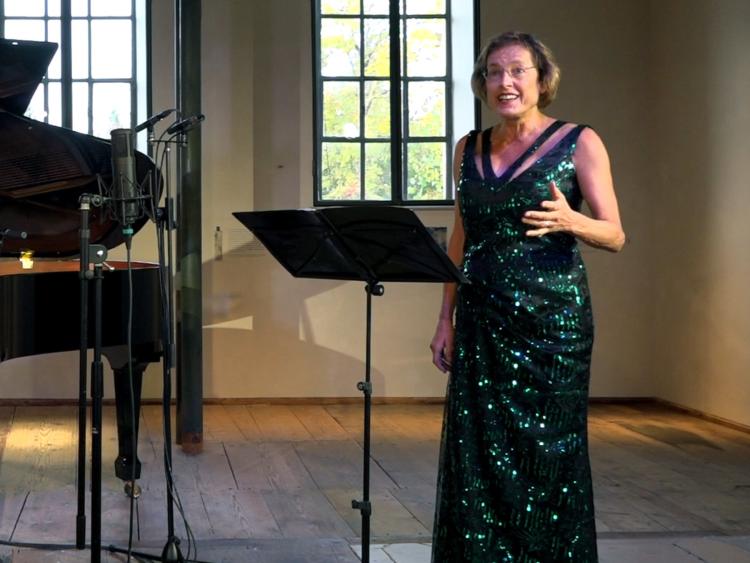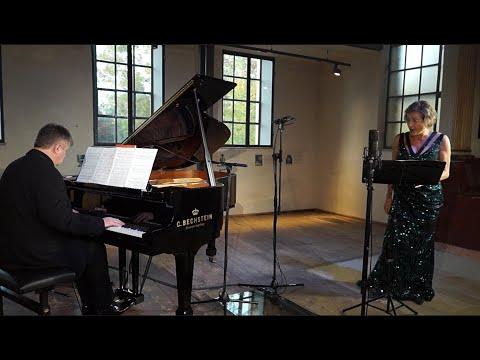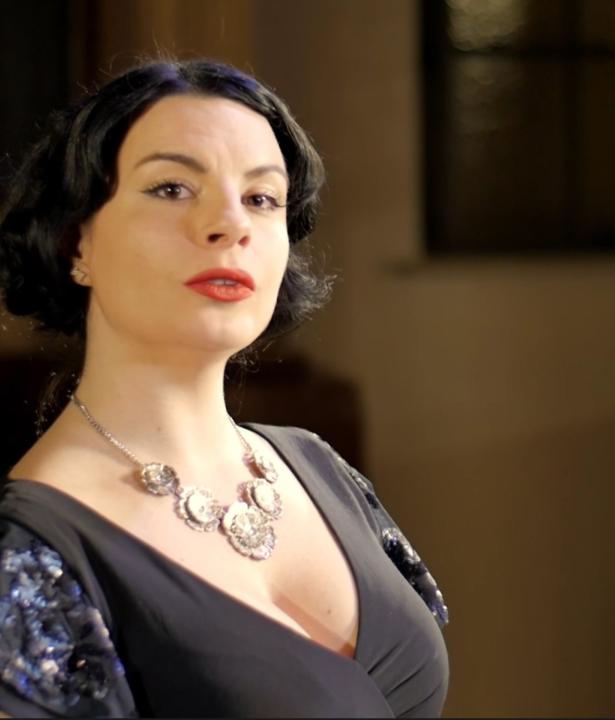Lutz Landwehr von Pragenau (music), Selma Merbaum-Eisinger (text) / Martina Swandulla (alto), Lutz Landwehr von Pragenau (piano)
Text
The following two recordings present music by German composer Lutz Landwehr von Pragenau. He was born in Regensburg in 1963 to parents from Bukovina and studied composition at the University of Music and Performing Arts in Munich. He also studied conducting at the Salzburg Mozarteum. He was a founding member of the Regensburg Orchestra at the Singrün, where he served as permanent conductor from 1999 to 2017. He teaches piano at the Institute for Music Education at the University of Regensburg and lives in Munich. Landwehr von Pragenau strives to overcome the topos of “new music” and plays with the listener’s expectations, thus continuing compositionally along a path taken by role models such as Wilhelm Killmayer (1927–2017) and Günter Bialas (1907–1995).
Text
Text
Landwehr von Pragenau wrote the two songs presented here, Tragik (Tragedy) and Schlaflied (Lullaby), based on two melancholy love poems by Selma Merbaum-Eisinger (1924–1942, also: Merbaum-Eisinger) from Bukovina, who was born in 1924 in the then Romanian city of , (which had belonged to the Habsburg Monarchy until 1918 as Czernowitz). From an early age, she read poetry from various cultures. From 1939 she wrote poems on the themes of love and nature and translated French, Romanian and Yiddish texts.
Černivci
ron. Cernăuţi, deu. Czernowitz, heb. צֶ׳רנוֹבִיץ, heb. Tschernowitz, yid. טשערנאָװיץ, yid. Tschernowitz, rus. Черновцы, rus. Tschernowzy, ukr. Чернівці, deu. Tschernowitz
Chernivtsi (Ukra. Чернівці) is a large city in southwestern Ukraine. The city is located on the border with Romania and is widely considered to be the capital of the historic Bukovina region. Chernivtsi was an significant place of Jewish culture. In 2017 Chernivtsi had about 62,000 inhabitants.
Due to the war in Ukraine, it is possible that this information is no longer up to date.
Text
Text
After Romanian troops invaded her hometown in 1941 and reclaimed Bukovina, which had been ceded by Romania to the Soviet Union in 1940 as part of the Hitler-Stalin Pact, Selma Merbaum-Eisinger’s family was interned in the Jewish ghetto. In 1942, the family (as well as that of Paul Celan, Selma’s second cousin) was deported to , annexed by Romania, and taken to a forced labor camp, where Merbaum-Eisinger died of typhus in December of that year. The complete edition of her poems, which she had written for her friend Leiser Fichmann, first appeared in West Germany in 1980 under the title Ich bin in Sehnsucht eingehüllt (I am Engulfed in Longing). Today these works belong to world literature.
Transnistria Governorate
deu. Gouvernement Transnistrien, ron. Guvernământul Transnistriei
Text
Martina Swandulla studied in Munich, Italy and the USA. Her singing activity covers the entire spectrum of sacred music for alto, especially of the Baroque period. An encounter with the composer Lutz Landwehr von Pragenau has proved to be a mutually inspiring and uplifting experience, leading to valuable cooperation and a number of successful interpretations.
Lutz Landwehr v. Pragenau (*1963) studied composition at the University of Music in Munich with Wilhelm Killmayer. Most recently, he received the Bavarian Composition Prize awarded by the Via Nova Choir in 2020. In his works he focuses on a radical reconciliation with traditional patterns of tonal music. For only in the conventional, familiar language does it seem possible to him to present the peculiarity and characteristics of his music in the form of deviation and discontinuity.
Text
English translation: William Connor
Externe Links










